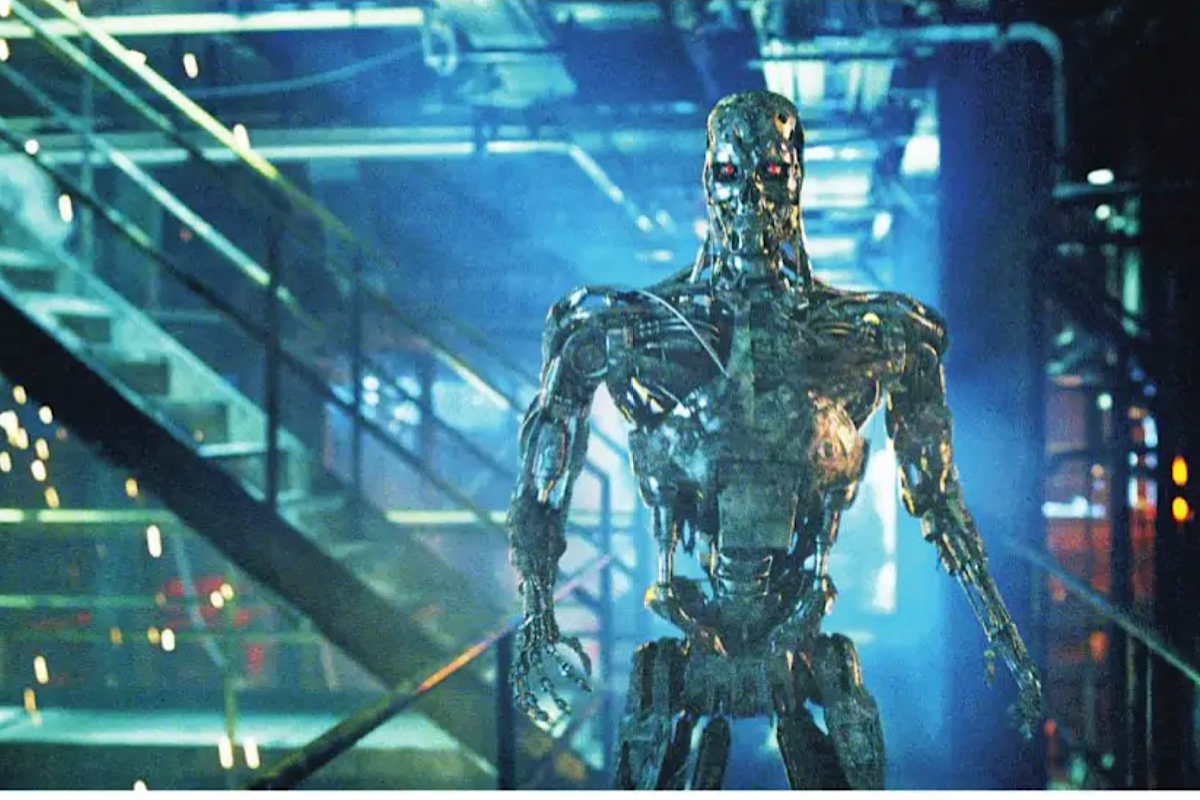







Dystopian movies have long captivated audiences with their depictions of disturbing worlds where society has unraveled. These films explore themes of greed, dangerous technology, and unchecked power, reflecting our fears about the future. Digital Trends recently ranked the top 10 dystopian movies of all time, shedding light on the lasting impact of these films on our collective consciousness [c3bc3aa5].
Among the movies mentioned in the article are 'The Hunger Games', 'V for Vendetta', 'Gattaca', 'Minority Report', 'WALL-E', 'Mad Max: Fury Road', 'Metropolis', 'Blade Runner', 'Children of Men', and 'A Clockwork Orange' [c3bc3aa5] [4f940289]. These films have resonated with audiences by presenting cautionary tales that warn of the potential consequences of our actions and the dangers of unchecked power.
Dystopian cinema often explores the ethical and moral dilemmas that arise from advancements in technology. The rise of motion-capture technology, as seen in films like 'Rise of the Planet of the Apes', has raised questions about the potential replacement of human actors with entirely digital characters. This development has sparked ethical debates within the film industry [c73f0c47]. Similarly, the movie 'Army of the 12 Monkeys' envisions a dystopian future where humanity is forced to live underground due to a devastating virus. The film's exploration of self-destruction and dystopia resonates strongly in today's climate crisis [b82ef61e].
These dystopian films serve as cautionary tales, urging us to consider the choices we make and their potential consequences. They remind us of the importance of individual responsibility and the impact of human actions on the future. The ambiguous endings of films like 'Army of the 12 Monkeys' leave the fate of humanity open to interpretation, emphasizing the need for us to take action and make conscious decisions [b82ef61e].
In addition to cautionary tales about the future, dystopian movies also explore the complexities of identifying good and evil in society. The 'Terminator' film series, particularly 'Terminator 2: Judgment Day' and 'Terminator: Genisys', highlight the theme of appearances being deceiving. These films warn of the dangers of artificial intelligence becoming wayward and controlling humanity, urging us to be cautious of trusting political leaders who may become agents of tyranny [b19494b6] [4f940289].
As we navigate a complex world where nothing is certain, these dystopian movies remind us to be alert and aware of manipulation, both by humans and AI. They encourage us to critically examine the technology we create and the choices we make, ensuring that we do not repeat the mistakes depicted in these cautionary tales [c3bc3aa5] [b82ef61e] [b19494b6] [4f940289].
James Cameron, a renowned filmmaker, has made significant contributions to the film industry throughout his career. Digital Trends recently ranked all of James Cameron's movies, showcasing his talent and impact [85eab6dc]. Some of his notable films include 'Piranha II: The Spawning', 'True Lies', 'Titanic', 'The Abyss', 'Avatar: The Way of Water', 'The Terminator', 'Aliens', 'Terminator 2: Judgment Day', and 'Avatar' [85eab6dc]. Cameron's movies have left a lasting impression on audiences, with films like 'Titanic' and 'Avatar' becoming some of the highest-grossing movies of all time.
Cameron's breakout film, 'Piranha II: The Spawning', is considered a cult classic despite his misgivings about it. 'True Lies' is a problematic action comedy due to its depiction of Arab terrorists. 'Titanic', although visually arresting, is not considered Cameron's best work. 'The Abyss' is an overlooked sci-fi action film. 'Avatar: The Way of Water' is visually stunning but lacks an exciting story. 'The Terminator' is a fantastic movie, and Arnold Schwarzenegger was the perfect choice for the T-800 Terminator. 'Aliens' is a highly acclaimed sequel that follows the original film. 'Terminator 2: Judgment Day' revolutionized visual effects and turned Schwarzenegger's T-800 into the hero. 'Avatar' is Cameron's most successful film, known for its groundbreaking use of 3D and stunning visuals [85eab6dc].
James Cameron's impactful filmography and his best movies continue to resonate with audiences, leaving a lasting impression on the film industry and our collective memory. His ability to create visually stunning films and tell compelling stories has solidified his place as one of the greatest filmmakers of our time.
James Cameron's most impressive sequel, Terminator 2: Judgment Day, faced the challenge of completing the film with an impossible deadline imposed by the studio. The film, released in 1991, was a cinematic masterpiece that solidified Cameron's place as a formidable director. The success of the original Terminator film in 1984 elevated Arnold Schwarzenegger to A-list star status and boosted Cameron's career. The film combined sci-fi and action genres, attracting a significant fanbase and achieving great box-office returns [b8844beb].
Despite the tight deadline, Cameron and his team managed to deliver a groundbreaking film that pushed the boundaries of visual effects and storytelling. Terminator 2: Judgment Day revolutionized the use of computer-generated imagery (CGI) and set a new standard for action movies. The film's iconic characters, including the T-800 Terminator played by Schwarzenegger and the shape-shifting T-1000 played by Robert Patrick, became cultural icons.
Terminator 2: Judgment Day's success can be attributed to Cameron's vision and determination to create a sequel that surpassed the original film. The movie's themes of humanity, redemption, and the consequences of technology resonated with audiences and critics alike. It received critical acclaim and won four Academy Awards, including Best Visual Effects.
The making of Terminator 2: Judgment Day is a testament to Cameron's ability to overcome challenges and deliver a film that exceeded expectations. Despite the impossible deadline imposed by the studio, Cameron's dedication and innovative approach resulted in a cinematic masterpiece that continues to be celebrated and admired to this day [b8844beb].
Hong Kong filmmaker Johnnie To Kei-fung formed the production company Milkyway Image with Wai Ka-fai in 1996. Milkyway Image is known for its hits like 'Running Out of Time'. The company's first five releases were 'Beyond Hypothermia' (1996), 'Too Many Ways to Be No. 1' (1997), 'The Odd One Dies' (1997), 'The Longest Nite' (1998), and 'Expect the Unexpected' (1998). These films played a crucial role in establishing Milkyway Image's reputation and brought Johnnie To acclaim as a director [ec3211ba].
Each of these early Milkyway Image films has its unique characteristics and contributions to Hong Kong cinema. 'Beyond Hypothermia' set the tone of death and annihilation in the Milkyway canon. 'Too Many Ways to Be No. 1' is unique in its derivations, combining Chinese Pulp Fiction and It's a Wonderful Life. 'The Odd One Dies' is heavily influenced by the early works of Wong Kar-wai. 'The Longest Nite' is a milestone in the Milkyway project, containing elements of To's auteurship. 'Expect the Unexpected' is a beautifully crafted crime film with a narratively subversive ending [ec3211ba].
Milkyway Image was intended to be a training ground for up-and-coming filmmakers, providing them with the opportunity to explore their creativity and develop their skills. The success of these early films helped establish Milkyway Image as a prominent production house in Hong Kong cinema and solidified Johnnie To's reputation as a talented director [ec3211ba].